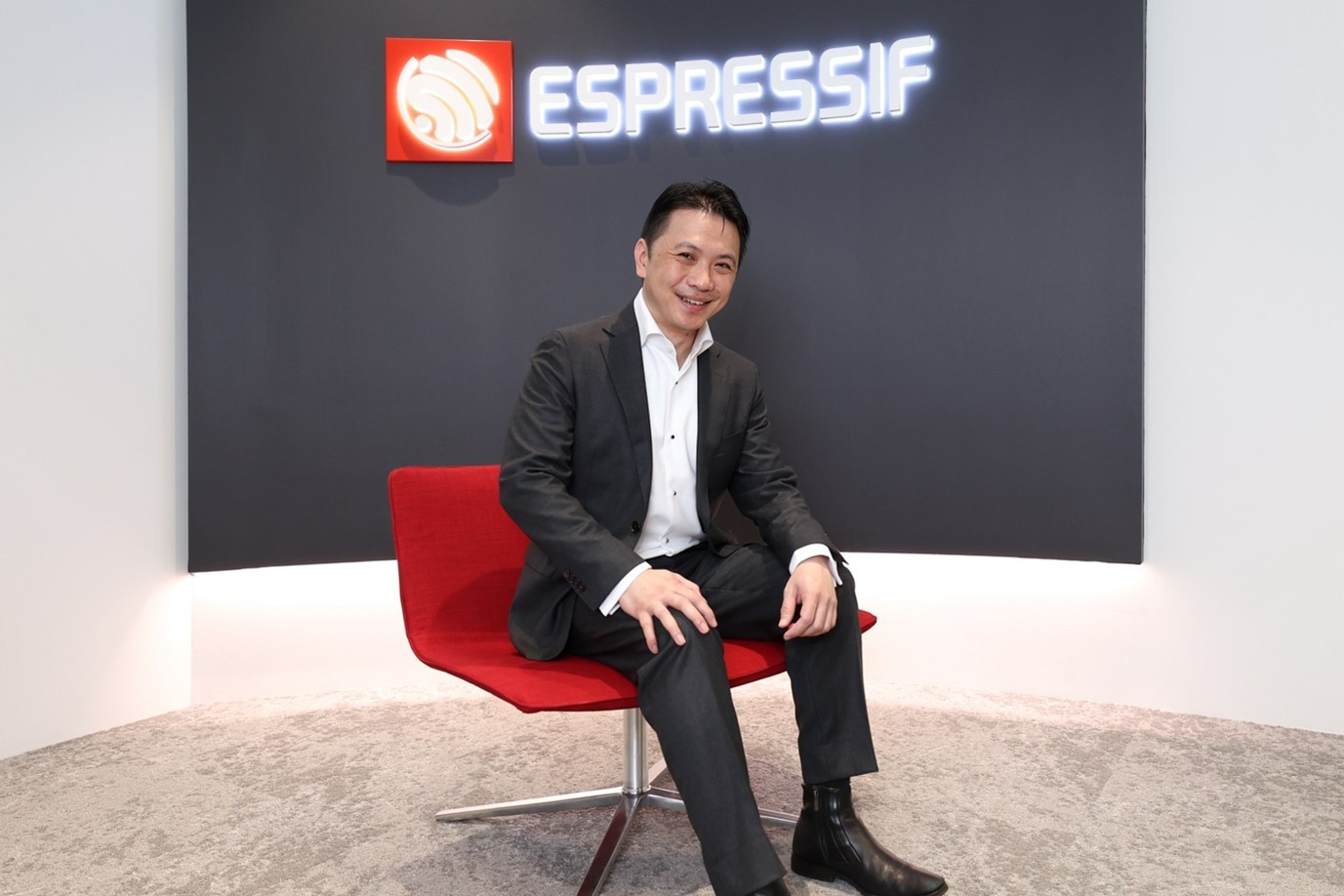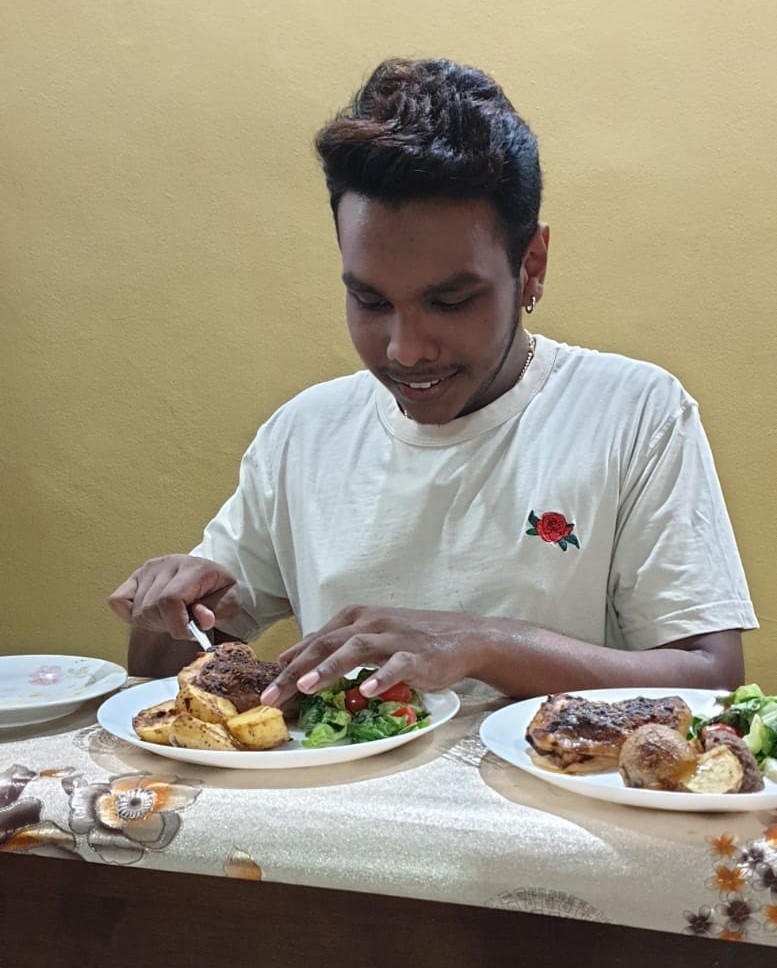While most of his friends were playing video games for fun, 12-year-old Teo Swee Ann was trying to find out how they were programmed to work.
He had always liked meddling with the home computer and taking things apart. And his parents let him be – after all, he could make things work again when he put them back together.
“It was something that was just innate. I could read a manual and understand it,” recalls the founder and CEO of Espressif Systems, a multinational semiconductor firm based in Shanghai. From that young age, Mr Teo’s engineering ambition took shape.
Now 48, he leads the company that is best known for designing two low-cost Wi-Fi microchips. One of the chips, the ESP8266, has even been described as “legendary”.
Interests first, grades second
The independent thinker in Mr Teo was clear from the start.
In chats and email replies sent to Schoolbag as he shuttled between his offices in five countries, Mr Teo remembers never bowing to pressure to chase grades in school. He made peace with his weaker subjects and focussed his energies on his areas of passion.
“In life, are you going to spend your time on the subjects you were lousy at and miss out on the things that you’re interested in?” he questions candidly. In primary and secondary school, his favourite subject was Mathematics, which he pursued doggedly with a little help from his teachers.
One of them, Mr Chew Kim Liong, left significant impact on him. In fact, says Mr Teo, “he changed the trajectory of my life”.
Mr Chew was his Maths teacher at The Chinese High School (now Hwa Chong Institution), who frequently piqued the interest of his students by giving them puzzles to solve. He saw the potential in Mr Teo, and decided to enter him in a national Maths competition, believing the exposure would benefit him.
“Mr Chew was someone who thought out of the box,” says Mr Teo unreservedly. “He sent me for the competition because he thought I was up for it. It was unheard of then, as students would usually need specialised training to go for the competition.”
Mr Teo came in seventh – not shabby for an amateur. He felt motivated after meeting the other participants at the competition, and wanted to delve deeper into the thrills of mathematics.
As a prize for his placing, he got to attend advanced lessons on number theory and geometry, taught by external professors. The exposure solidified his interest in mathematics – as Mr Chew had hoped – and opened his eyes to its career possibilities. From there, he set his sights on what area to pursue – electrical engineering – which combined his passions for systems and mathematics.
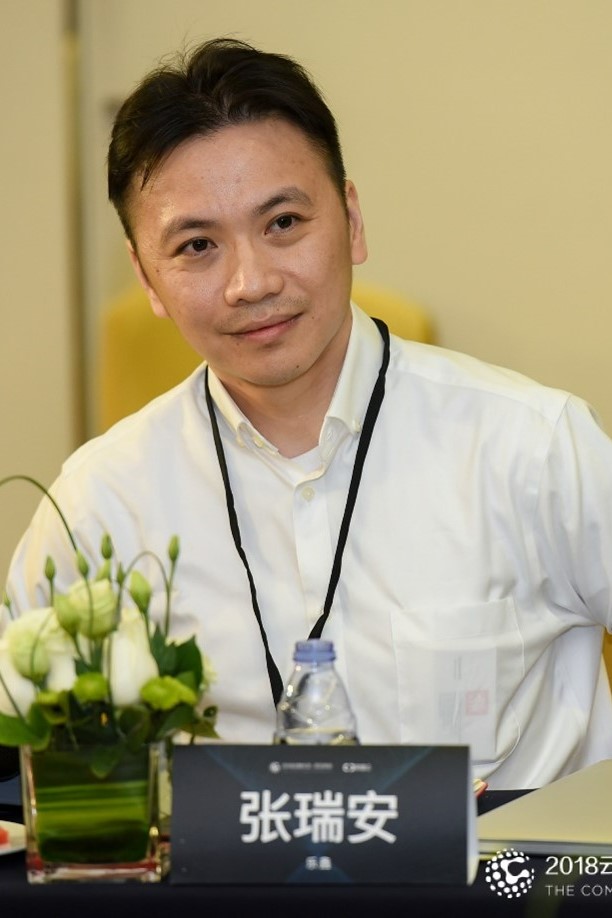
Honest conversations and transparency
Mr Teo may have been driven, but he didn’t try to excel at all cost. If he had to take up a subject he was weak at, just to learn more about it, he would.
That’s why he chose to minor in law while reading electrical engineering at the National University of Singapore (NUS).
“Although I knew that I would not do well at law, I decided to take it because I was very interested in it,” he explains. “There are many principles that are not just applicable to the legal profession, such as the interpretation of law in a management sense.”
After graduating from NUS in 2000 with a Master’s in Electrical Engineering, he joined Transilica, which made Bluetooth chips, as a design engineer.
The start-up encouraged the freedom of pursuit and transparency that he enjoyed; “Like all startups, it was not perfect, but we also knew where we were going.”
He recalls walking into a meeting on his second or third day of work, where the team was discussing openly the issues that were delaying production. With that level of honest communication, everyone could know the real issues and the severity of the problems, in order to work effectively and resolve them, he explains.
That culture suited his personal code on candour.
He strives to maintain this level of transparency at Espressif, which he started as a one-man show in 2008. He now runs a 620-strong team across five countries. Based in Shanghai, Espressif also has offices in Brazil, the Czech Republic, India and Singapore.
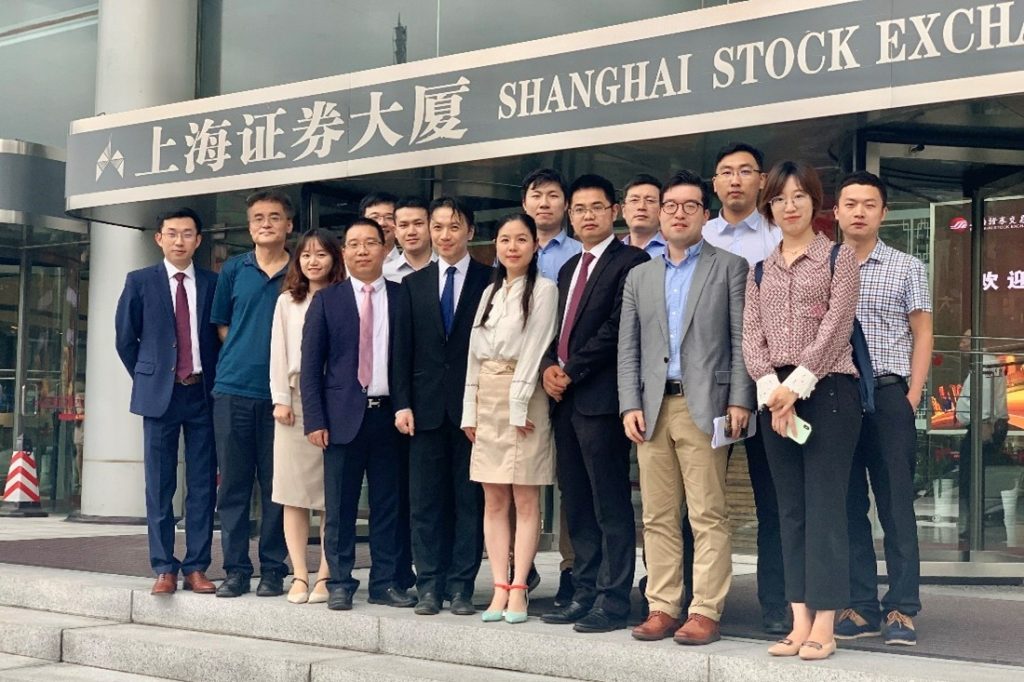
Building the Internet’s ‘Nervous System’
In 2008, the concept of technological singularity – where technology can teach itself to become more intelligent and continuously improve – took flight. Mr Teo, led by the belief that all things would eventually be connected to the Internet, was driven to create his first Internet of Things (IoT) microchip.
“The internet is the spine, and we are building the nervous system,” Mr Teo explains.
Fifteen years on, Espressif has established itself with two flagship IoT microchips, ESP8266 and ESP32.
With built-in Wi-Fi capabilities, these powerful yet affordable chips have taken the IoT world by storm and are popular both with the maker community and with large organisations to build smart devices and systems. ESP32 chips, for example, are used to power goods such as speakers, wearable devices and home appliances.
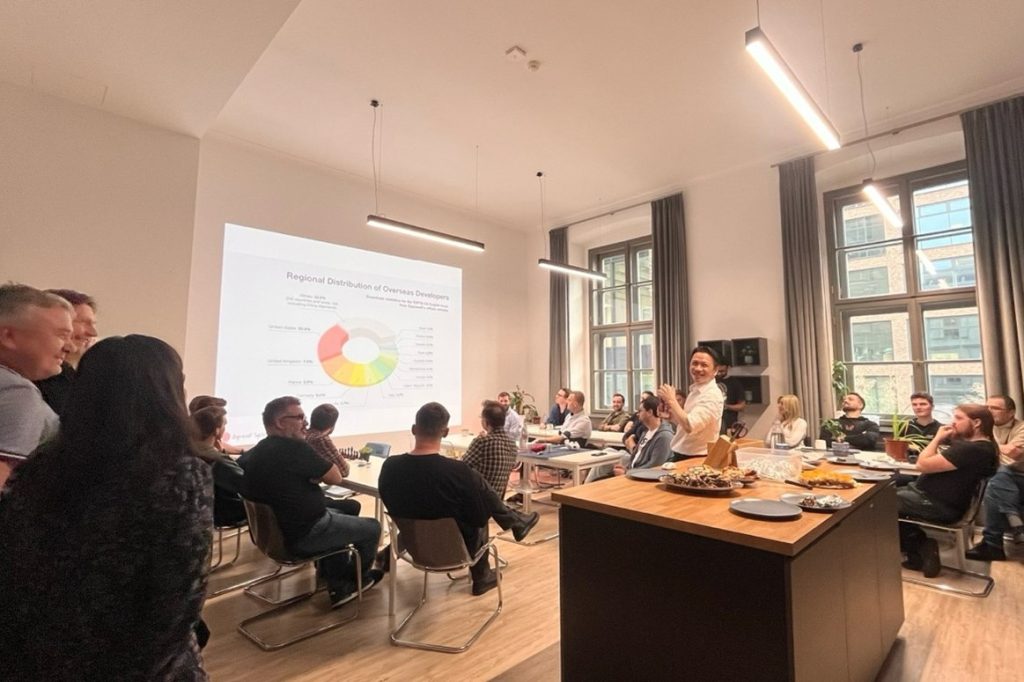
With Mr Teo at the helm, Espressif was able to cut down the number of components in the Wi-Fi module – a device used to transmit Wi-Fi signals to electrical gadgets – from more than 100 to seven, something that had not been done before. It took a huge amount of engineering work, but the result is lowered costs for consumers.
But even as he leads in making business decisions – and was ranked in the process among Forbes’ 50 richest Singaporeans in 2021 with a net worth of US$1.55 billion – the tinkerer in Mr Teo doesn’t sit back. He actively works “in the frontlines” with the engineers at Espressif. “I’m in the trenches,” he reveals. “I do measurements and circuit designs, everything. I love that.”
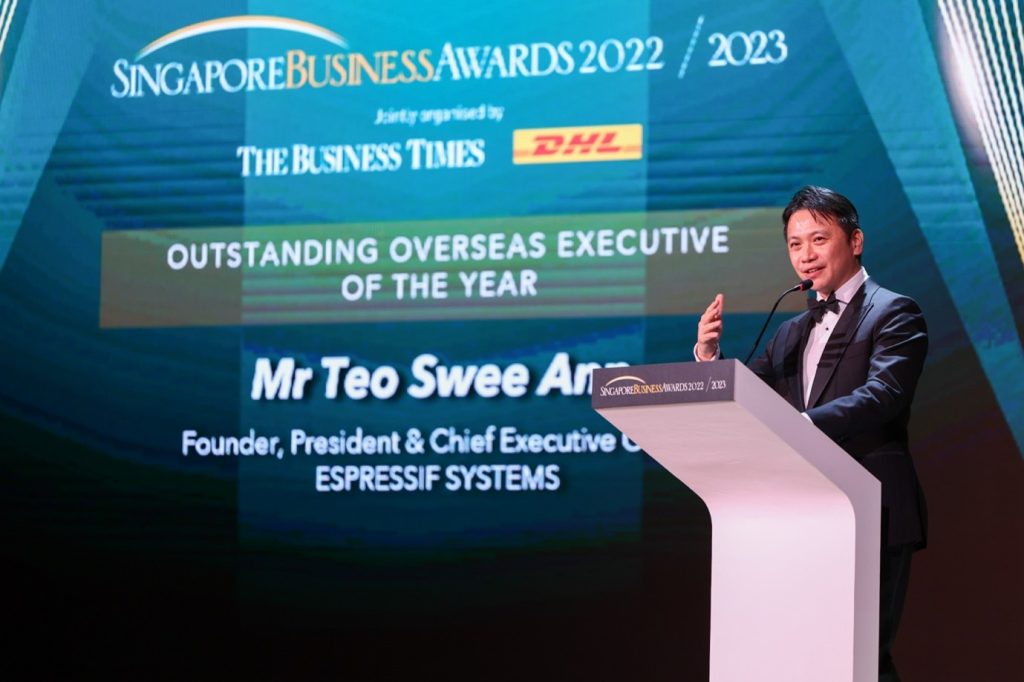
Success is… striving for constant improvement
In 2023, Espressif announced that its global shipment of wireless connectivity chips had crossed the one billion mark since the launch of the ESP8266, a chip that Singapore’s Foreign Affairs Minister Vivian Balakrishnan once called “legendary” for its breakthrough capabilities. With 200 million shipments in the past year alone, Espressif expects to reach the next billion milestone in approximately three years.
While the entrepreneur known for a robust work ethic may epitomise success to many, Mr Teo stresses that “success” takes many forms. “There should not be a ready-made definition of success,” he maintains.
Some might want a laid-back life while others may seek more money. “Whatever ideals you seek, that is worth living for,” he adds. For him, that ideal is doing good design and constantly improving upon the circuit that he has created.
The father of four imparts the same philosophy to his children: Excelling in everything at school is not the goal; doing well in subjects that interest them is good enough.
His one ardent wish: “I hope they each have something that they are passionate about.”



